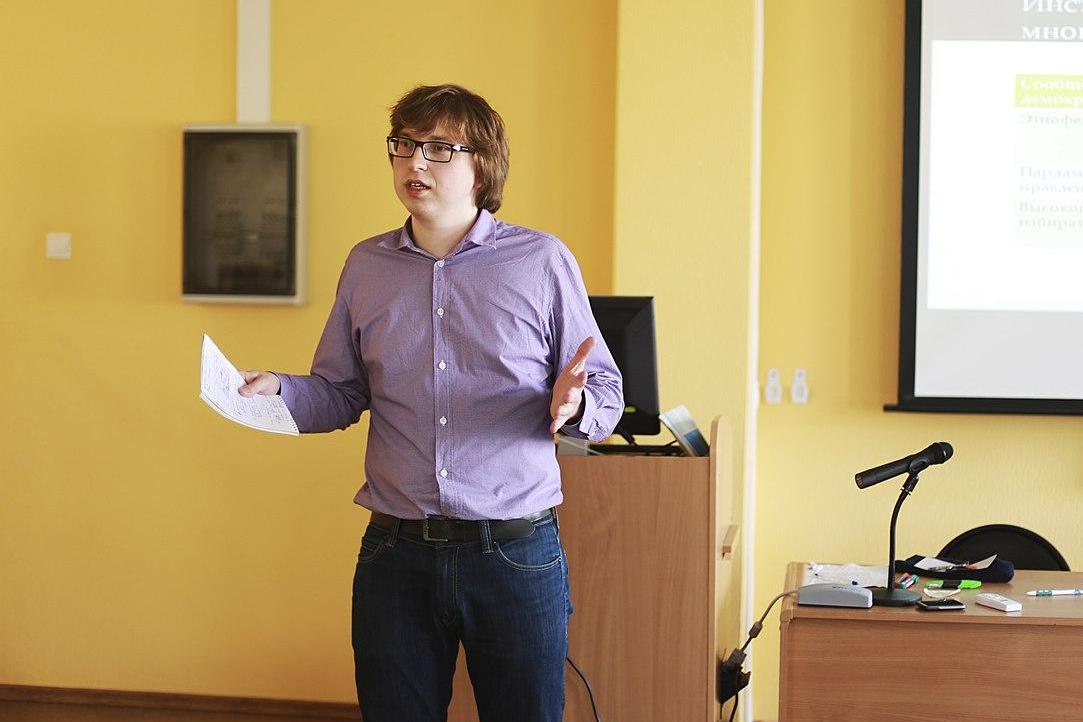International Admissions: Interview with Dean Andrey Starodubtsev
HSE University is becoming more and more popular among international applicants. We have decided to talk with Andrey V. Starodubtsev, Dean of the School of Social Sciences and Area Studies at HSE University and the Academic Supervisor of the MA Programme in Comparative Politics of Eurasia to learn more about HSE's international admissions.

— Are there any changes this year regarding the international admissions?
There have been no fundamental changes in the university admission process for international students. The campaign started on November, 1 and will last until August 14, 2020. For those who are interested in studying at HSE University in Saint-Petersburg, we recommend visiting the International Admissions page on our website, where all the rules are described in detail. They are pretty simple.
There is one thing I’d like to draw your attention to. Although the deadline for applications is mid-August, I recommend you to submit the documents as soon as possible. This is especially important for applicants who enter MA programmes, since they are supposed to have an interview with academic supervisors. The sooner the interview is conducted, the earlier students will be notified about their chances of being enrolled in a programme.
There are no interviews at the undergraduate level now, which is probably the main novelty of this year. Applicants for BA programmes take exams and, based on results, may be accepted.
— The School of Social Sciences and Area Studies offers programmes in four areas - Area Studies, Public Administration, Political Science and Sociology. Which programme do you consider the most interesting for international applicants?
Firstly, it must be said that the School of Social Sciences and Area Studies is one of the most international faculties of HSE University - St. Petersburg, and, maybe, the entire university. We offer a variety of international programmes, which is quite unique for Russia. We are proud to have a large number of programmes taught in Russian, where Russian-speaking international students can be enrolled in. We also have several programmes conducted in English. These are 'Political Science and World Politics' and 'Sociology and Social Informatics' at the undergraduate level, as well as three MA programmes: 'Comparative Politics of Eurasia', 'Business and Politics in Modern Asia', and 'Modern Social Analysis'. The latter has a special English-language track on modern quantitative methods of social analysis.
All our programmes have a clear focus, so each applicant may find a programme that most closely matches their professional interests or career plans. For instance, some aim to study modern states and politics in particular regions, like the programmes on Political Science, which are focused on Europe, East Asia and BRICS at the undergraduate level, and the Post-Soviet Space at the Master’s level. We have programmes on Sociology with a particular focus on obtaining skills in data analysis. If applicants are planning a non-academic career or are interested in China, they may choose the MA programme Business and Politics in Modern Asia, dedicated to the practical skills of doing business or living in Asia. Our BA in Area Studies, held in Russian, will be an excellent choice for those who see their professional future related to the languages, culture, society of the Middle East and Asia.
Finally, there is a demand for modern education in public administration. Here we offer two Russian-language programmes: BA in Management and Analytics in the Public Sector and MA in Urban Development and Management.
— Isn’t it easier for international students to enter a university in their countries and then come to our university for an international mobility programme? Four years is quite a long period of time. It may seem that even in a year you can get pretty good knowledge and skills.
Indeed, the international mobility is an important part of studying. Now our students can spend 6 or 12 months in another university to complement their education with some unique knowledge and skills offered by other institutions.
But now we are talking about applicants who have long-term plans: four years for undergraduate programmes and two years for Master’s. In this case, HSE University offers excellent opportunities as we are quite experienced in teaching international students, as well as providing fast and professional support in the international student exchanges.
We have different models of education in terms of tuition fees. Firstly, there are quotas, funded by the Russian Government under a number of international agreements. It is a highly convenient option for many students. Secondly, students may be enrolled in a programme with a tuition fee. Our advantage is that the fee is the same for international and Russian students, and altogether it is relatively low in comparison to other universities in Europe. It is especially important for undergraduate students, since BA programmes are longer and hence more expensive.
— What would you recommend to international students so that they make a successful choice?
Well, firstly, I would advise undergraduate applicants not to worry much about the specialization they are planning to choose. In my opinion, for undergraduate students it is more important to make a good choice of a university rather than a programme, especially in case of social sciences. So, this is not about choosing politics, area studies or sociology. It is about getting accepted to HSE University or any other university. Of course, for Master’s students the subject matter of the programme is more important, as MA programmes are shorter and more focused. Here it is crucial to think of how this knowledge will help you in achieving your career goals.
In general, I would recommend starting to think about this as soon as possible. The more time you devote to preparation, the more alternative options you will have.

